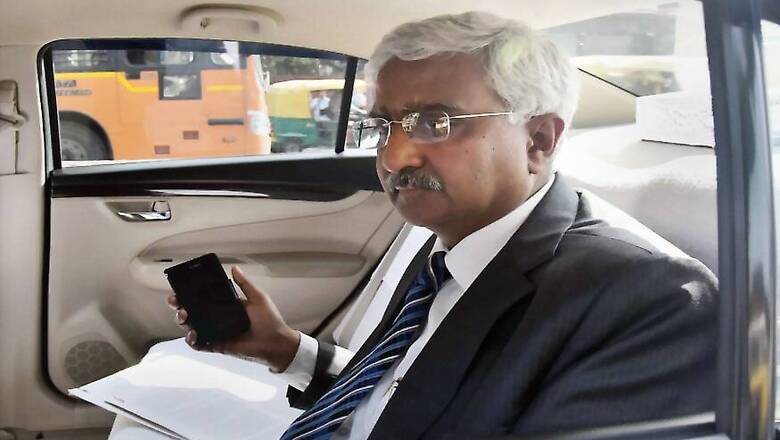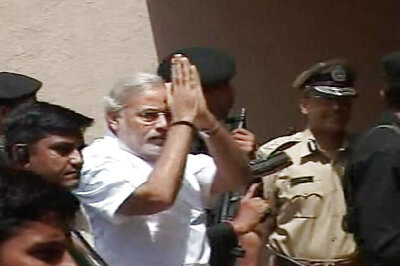
views
With an amenable solution to the administrative deadlock caused by the alleged assault on Delhi Chief Secretary Anshu Prakash by AAP MLAs nowhere in sight, wider questions regarding the relationship between the political and permanent executive have started to arise.
With Chief Minister Arvind Kejriwal sticking to the tune of ‘political conspiracy’ behind the midnight incident at his residence, the city’s bureaucracy will not easily take the bait. That nobody was buying the theory was evident in the observations made by Justice Mukta Gupta of Delhi High Court, hearing the bail plea of accused MLAs. “A person can be assaulted in the presence of the Delhi Chief Minister and the Deputy Chief Minister, what will happen at other places. How should I be satisfied that no such incident would take place in future?” the court observed.
A situation where the two wings of the government are pre-occupied in settling scores, governance for sure is suffering. An ungoverned Delhi is something which the people did not bargain for while voting for change in 2015.
The situation of non-governance has persisted on the account of the alleged “mean acts” on the part of the political executive of the state to make an aggrieved bureaucracy fall in line. In their vigour to establish authority, the political executive has ended up with actions which can best be described as an abuse of power, almost inviting judicial intervention.
If one were to discuss the “mean acts”, the first was to force the senior bureaucrat to attend a meeting close to the midnight, which largely was a parley of party functionaries.
The second “mean act” was alleged use of violence by political functionaries to force a purely administrative decision. And when the bureaucrat refused to sign on the dotted lines, the political executive allegedly used the third and most “mean act” of using legislative authority to browbeat the officer.
Expectedly the officer went to the High Court seeking restraint, forcing the judiciary to examine whether it was competent to hear the matter which should have remained within the domain of the executive-legislative wings. The long-term fallout of such intransigence, the HC rightly pointed out, could be devastating for the functioning of the government.
Justice Rajiv Shakdher, before whom the matter came up after passed over by a double bench, mentioned, “Today it is the Delhi assembly, tomorrow it might be the Lok Sabha. You have to address us on the issue, it requires consideration.” The judge in a way has given time to Delhi Government to save itself from a judicial fiat.
Given the unique situation in Delhi assembly, where Aam Aadmi Party has a brute majority in the House, all the legislative committees are populated only by the ruling party members. These legislative committees, monopolised by the ruling party, have repeatedly faced the charge that instead of working as the supervisory body of the House over the government, it has reduced itself to the role of hatchet tool of the latter, persecuting those who are standing up to the government.
Ordinarily, in Assembly and parliamentary committees, the membership of these committees is in proportion to the strength of the parties in their respective Houses. There also is the precedence of allowing some of the important, especially the financial committees like the Public Accounts Committee (PAC) and Estimates Committee, to be headed by senior leaders from the opposition benches.
The convention is that the members function in these committees rising above party line and maintain check and balances over the government through its thorough reports prepared with the aid and assistance of the bureaucracy.
Even in the case of Delhi Assembly, there is the instance of a PAC report upbraiding the Sheila Dikshit government on several counts during the privatization of the power sector undertakings. This report was incidentally corralled by a senior Congress legislature Dr. Suresh Chand Vats, who belonged to the then party in power.
The makers of Indian Constitution vested such powers in the legislative committees to widen the base of administrative machinery and create a mechanism of command and control to improve and streamline the functioning of the government but certainly not to use it as a Kangaroo Court, as the counsel for Chief Secretary alleged before the court.
Senior advocate Siddharth Luthra, appearing for the Chief Secretary, had termed the notice issued to Prakash to appear before the Privilege Committee of Delhi Assembly as a “clear case of malice” as he had named AAP MLAs Amanatullah Khan and Prakash Jarwal in his FIR for alleged assault.
The CS in his plea had sought quashing of the notice issued pointing that he has been asked to appear before the said committee which had Khan as one of its members.
The double bench of Justices GS Sistani and Sangita Dhingra-Sehgal, which heard the case briefly, before passing it onto the single-judge bench of Justice Rajiv Shakdher, had made a very pointed observation on the functioning of the committees of Delhi assembly. It said, “He is your chief secretary. If you do not respect him then how will things work? Was there no other way of calling him?”
More dangerous is the intent of these committees, as was brought out by the counsel of the Lieutenant Governor before the court.
Additional solicitor general Sandeep Sethi, appearing for the Lieutenant Governor, told the court that the privilege committee did not have the power to direct the chief secretary to incorporate adverse comments in the annual confidential report of another civil servant.
If this is true there could not be a greater example of the insolent functioning of the legislative committees. And if the situation has arisen, where judicial intervention has been sought, the courts should exercise its powers to define the relationship between the political and the permanent executive, who together, in equal share, are responsible for the functioning of the governments.
(The writer is a senior journalist and political commentator)

















Comments
0 comment